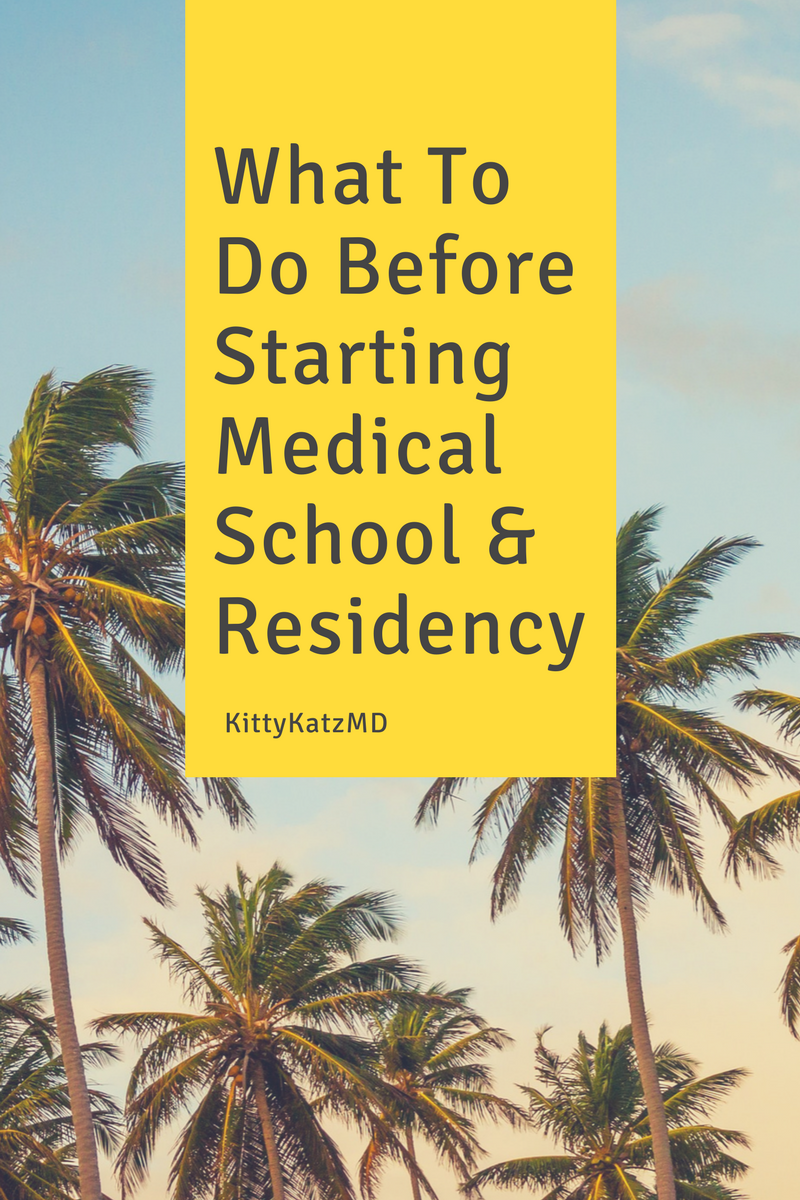What to do before starting medical school is one of the most commonly asked questions I hear from students about to begin their first semester of medical school. It’s the same question that I wrangled with after graduating medical school before starting my internal medicine residency. Here are my top three things to do with your last remaining days of freedom before starting medical school or residency.
Travel
Before starting residency I explored Thailand for two weeks and my only regret is that I didn’t stay longer. Traveling is a source of sustenance for the soul that can never truly be satiated. Traveling pushes you out of your comfort zone and forces you to grow as a person. You learn a lot about yourself when you remove your familiarities and submerge yourself in another culture and society. Who knows what a few weeks in another country will do for you. Go get lost so you can find yourself.
Nothing
As a resident we average one day off per week each month. That means we get, at minimum, four days off per month and sometimes that’s exactly what you get. So during residency, when you finally have free time on your hands you are often forced to be productive despite your zeal to just stay in bed and sleep all day. You have groceries to buy, laundry to fold, and an apartment to clean. Not to mention that research project you’re working on because you want to go into a competitive specialty. The work never stops. And after medical school you think your days of studying are over but step 3 and your specialty specific board exams always loom in the background. So if you want to sit and do nothing before you start medical school or residency then go sit and do nothing. You earned it and you don’t have to explain yourself to anyone.
Work
Med school is expensive and residency doesn’t pay too well so it certainly won’t hurt if you can muster up some extra cash while you can. I worked as the most overqualified AP bio tutor prior to starting residency. A friend of mine worked at our medical school as a standardized patient. A colleague of mine worked as a scribe in the emergency department. There are opportunities out there if you seek them out. Ultimately everyone’s financial and social situations are unique and you may not have the luxury to choose to work or not, let alone go on a vacation. For instance, the extra money I earned prior to residency helped me pay for my vacation while my friend who was a standardized patient used his money that he earned to pay for step 3 while my colleague used his extra money to pay for his kid’s braces. So work if you can but don’t overdo it. You don’t want to squander these last few weeks of sanity and freedom if you can afford to.
Take USMLE Step 3
Okay this is residency specific and should only be performed if you have so much extra time on your hands that you can do the aforementioned (1) Travel, (2) Nothing, and (3) Work and then still have more free time before starting residency. I would not advise anyone to take step 3 in lieu of traveling or doing absolutely nothing. Step 3 isn’t a particularly difficult test in my opinion. However, it is difficult to find the time and energy to study for it during residency. So do yourself a favor and if you have the time and money to take step 3 then register for the test, finish UWorld, and take it already (more detailed post on how to prepare for step 3 and when to take it is in the works).



